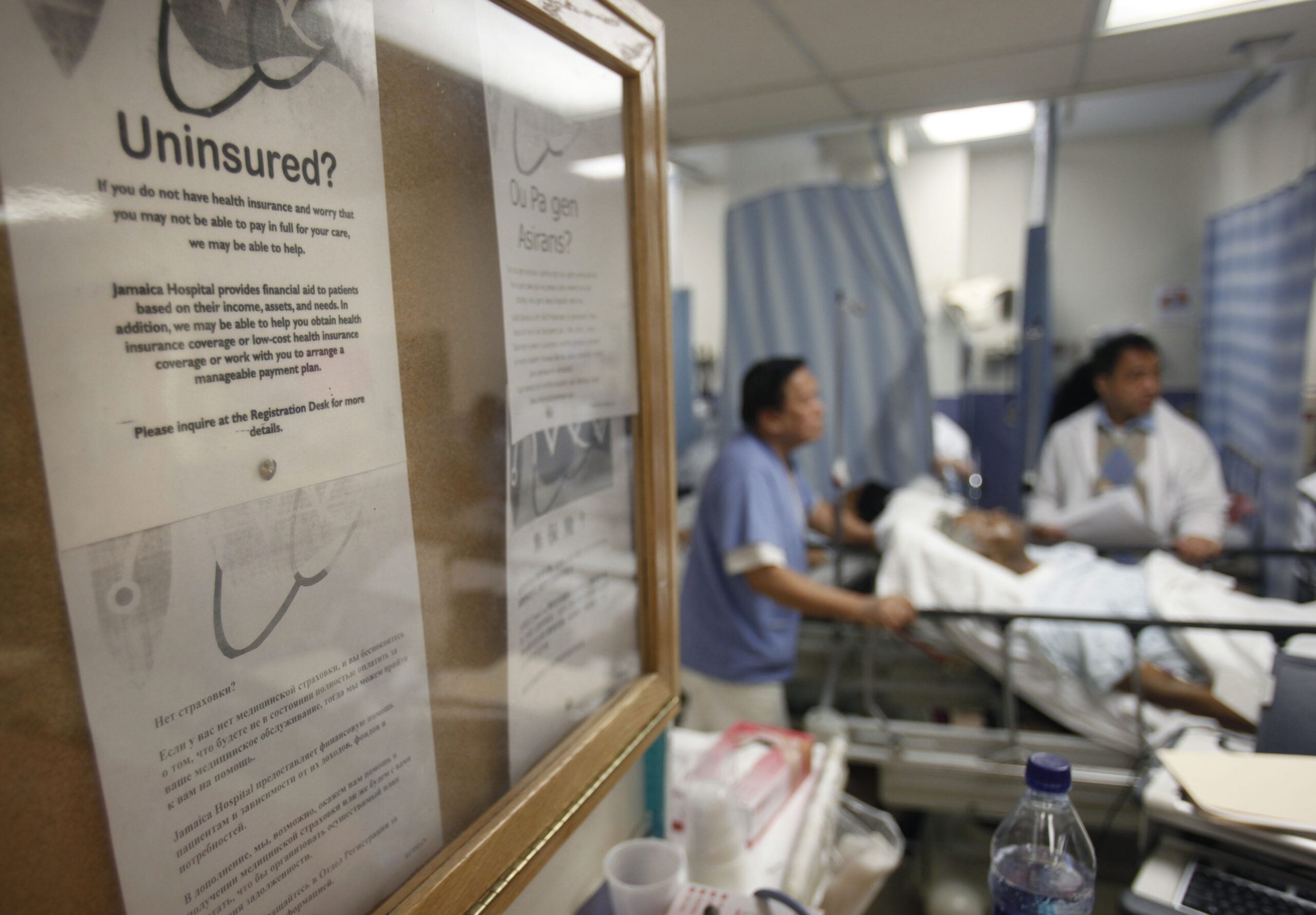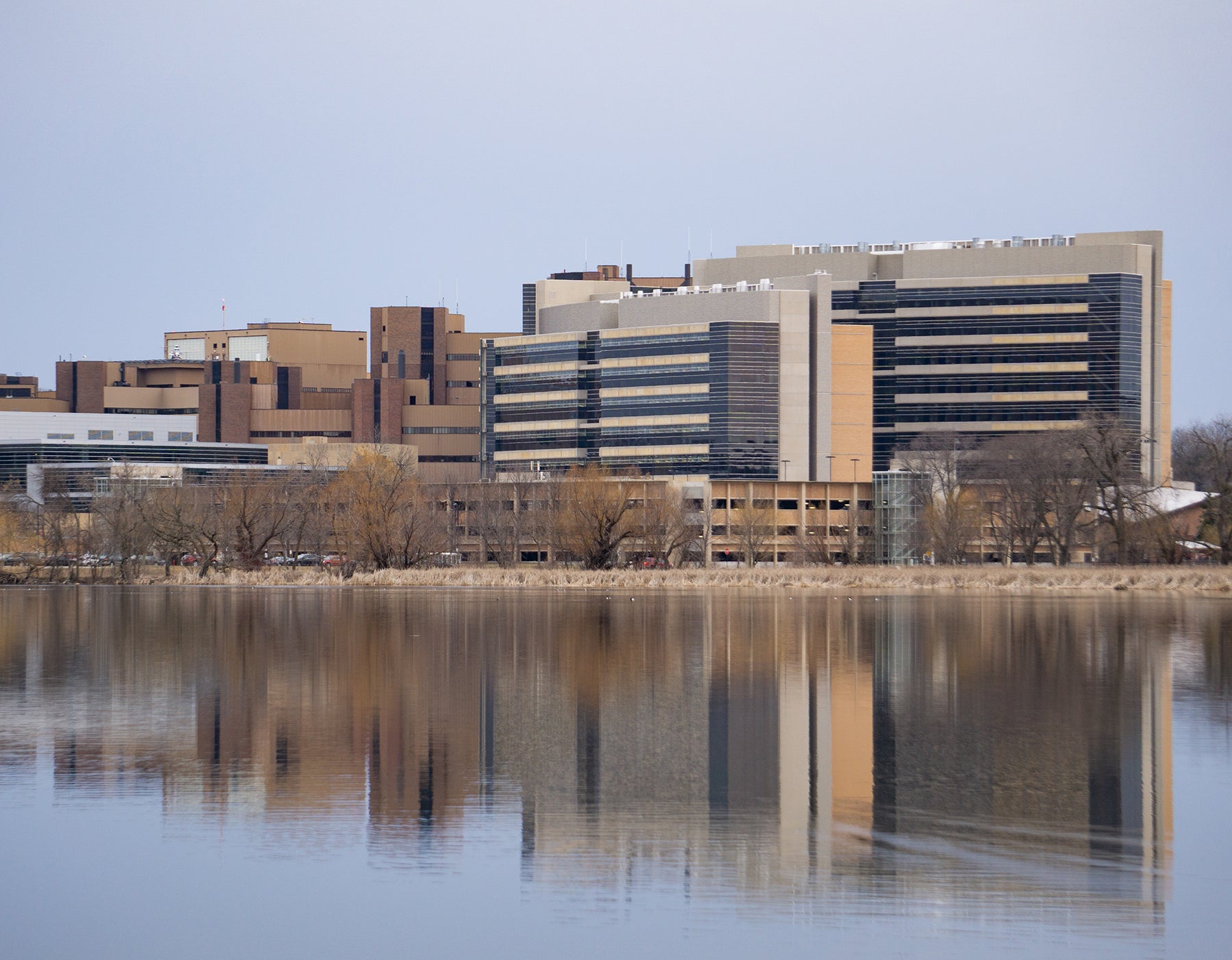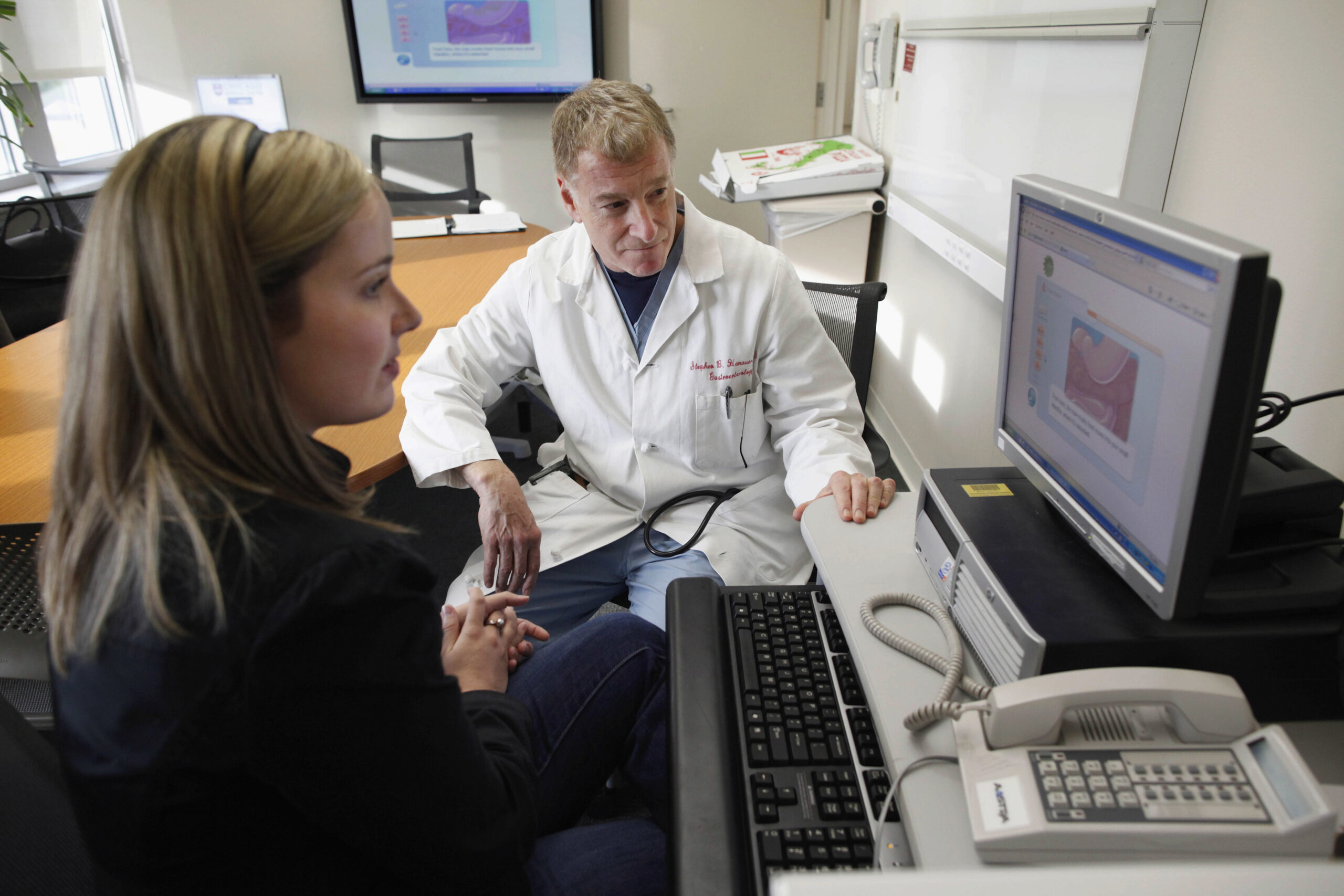Wisconsin health care associations hope programs funded in the new state budget will help ease persistent labor shortages affecting everything from hospitals to long-term care providers.
The budget was crafted by Republicans but signed Wednesday by Democratic Gov. Tony Evers. Hospitals, assisted living facilities, disability service providers and dental providers will all benefit from funding that goes toward workforce programs, and other initiatives.
According to the Wisconsin Hospital Association, the budget increases Medicaid reimbursement for hospitals to bring it closer to the actual cost of care. Eric Borgerding, the association’s president, said it especially targets hospitals with higher Medicaid patient volumes in rural and urban communities.
Stay informed on the latest news
Sign up for WPR’s email newsletter.
Medicaid is a federal program that insures low-income people. In Wisconsin, much of Medicaid is administered through the state’s BadgerCare Plus program.
Borgerding said the association is still calculating the extent to which the increase will bring Medicaid reimbursement closer to the cost of care. But he said the increase amounts to around $200 million in combined state and federal funding.
“We have divided government in Wisconsin, but we don’t think that should mean stagnant government,” he said. “We work very hard with both sides of the aisle, from the beginning to the end of the budget process, in order to achieve what I think are the best possible outcomes for our health care system.”
Borgerding said the budget also provides funding to prevent the health care workforce problem from getting worse. Specifically, it provides millions of dollars in matching grants to hospitals for education and training of physicians, nurses and other staff positions.
“We’ve always believed that if you take a Wisconsin kid and they go to a Wisconsin medical school, and they do their graduate medical training in Wisconsin, there’s a better than 85 percent chance that they’ll practice here in Wisconsin,” Borgerding said.
The Wisconsin Assisted Living Association had similar sentiments, as the budget allocates an additional $38.4 million in state and federal dollars to the Direct Care Workforce Funding Initiative to help providers supplement employee wages.
Michael Pochowski, the association’s president, said the fund was established to help combat the “caregiver crisis” in long-term care facilities and aims to make their wages more competitive.
“It’s a huge way to recruit and retain caregivers into these very important positions of providing care and services to elderly individuals and those with disabilities all across Wisconsin,” he said of the fund. “With this funding, it’s a huge lifeline for assisted living facilities to recruit and retain caregivers.”
He said the budget also includes a continuation of the 5 percent reimbursement rate increase to providers of home and community-based services that went into effect in 2022 as part of the American Rescue Plan Act.
“As Wisconsin’s workforce crisis continues many assisted living facilities face significant staffing and financial challenges,” he said. “These investments are necessary to maintain quality care and services to elderly individuals and those with disabilities.”
Lisa Davidson, CEO of the Disability Service Provider Network, said the rate increase was set to expire in March 2025, but the budget provides state funding to maintain the increase through at least June 2025. Between state and federal funds, she said the investment equates to $225.7 million.
“If that rate increase was not continued, it would essentially be the equivalent of a rate cut because our members have already put that rate increase to good use,” Davidson said. “They’ve primarily utilized that for recruitment and retention of quality staff, so it would have been really devastating had the state not stepped up to contribute that general purpose revenue that could then be matched with the federal matching percentage dollars.”
The Wisconsin Dental Association said this biennial budget also invests $20 million in Wisconsin technical colleges to train more dental hygienists, assistants and other oral health care providers.
In a statement, the association said that funding is “a critical step in addressing a dental workforce crisis that is not only bad for Wisconsin’s small businesses, but also devastating for patients.”
The budget also boosts access to dental care by expanding clinics at Marquette University School of Dentistry and Children’s Wisconsin, while enabling Marquette to establish a clinic to treat special needs patients, the dental association says.
“While there is more to be done to ensure every Wisconsinite has access to the dental care they need, this budget marks an important and positive step forward,” the association added.
Wisconsin Public Radio, © Copyright 2025, Board of Regents of the University of Wisconsin System and Wisconsin Educational Communications Board.





